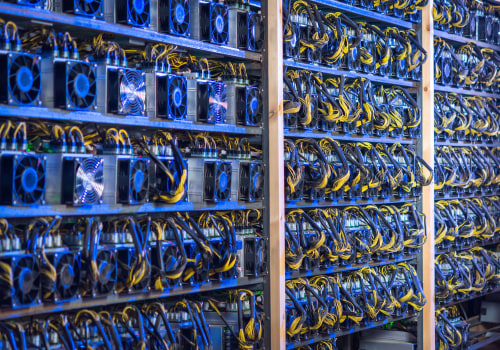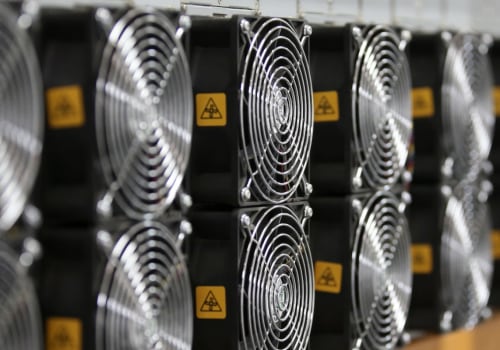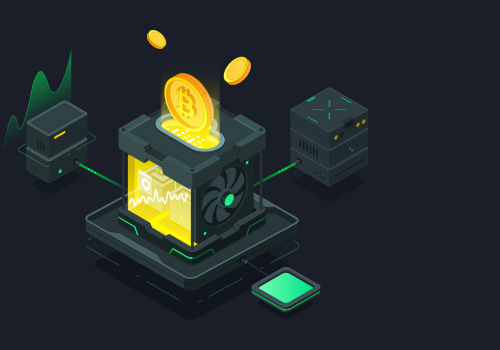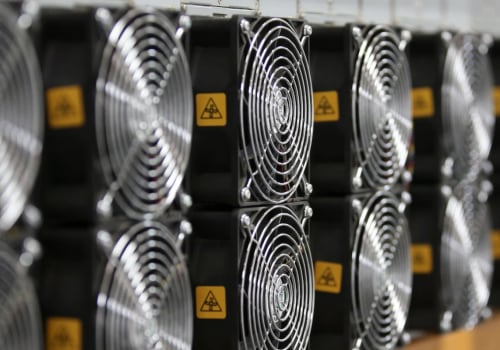Bitcoin mining is an energy-intensive process with custom mining systems that compete to solve mathematical puzzles. The miner who first solves the puzzle is rewarded with bitcoin. The bitcoin mining process also confirms transactions on the cryptocurrency network and makes them reliable. The basis for this is the so-called “blockchain”.
This is because in crypto mining or Bitcoin Mining, each individual transaction is grouped into “blocks”. They are then aligned in a linear sequence and linked to each other through a decentralized peer-to-peer network. All blocks have so-called “hash values”, which are a kind of check number for transactions made. The check number in turn contains the individual hash values of the current transaction, as well as the hash values of the respective previous transaction.
For its generation, a conventional computer can be used, which performs a cryptographic function, also called a “hash function” (SHA25). Thanks to this procedure, manipulation of transactions is impossible, since a subsequent change within the chain would not only stand out, but is not even mathematically possible. If only one value were manipulated, the subsequent value would also deviate from the actual sequence. In Venezuela, for example, they have a history of illegal miners, and because of this, they had a crisis of power.
On Nov. 23, the government announced its intention to submit a new bill to the Indian parliament that would establish a new central bank-backed digital currency and ban almost all cryptocurrencies. Although it is still possible to run Crypto Mining from home with the CPU of your own computer, today it is not recommended for economic reasons. However, due to the halving of the rewards, it will take until about the year 2140 to extract all the bitcoins.
Over time, miners realized that graphics cards, also known as graphics processing units (GPUs), were more effective and faster in mining. The next day, Turkish President Recep Tayyip Erdoğan went further and issued a decree that crypto exchanges included a list of companies subject to anti-money laundering and terrorist financing rules. While the Central Bank prohibits trading in cryptocurrencies mined abroad, it has encouraged Bitcoin mining in the country with incentives. For the cryptocurrency industry to thrive, Iran has offered licensed miners cheap energy, but requires that all mined cryptocurrencies be sold to the Central Bank.
This ensures that, from a certain point in time, generating a unit of crypto currency takes twice as long. Iceland has already experienced an energy shortage due to the rapid increase in crypto mining activities. As Bitcoin reaches its target limit of 21 million (expected around 2140), miners will be rewarded with fees for processing transactions that network users will pay. However, despite what Bitcoin advocates say, mining cryptocurrency is not a hobby of any kind.
Russian President Vladimir Putin has repeatedly linked cryptocurrencies to criminal activity, calling for increased attention to cross-border cryptocurrency transactions in particular. Just as gold is mined from the earth with large implements and machines, bitcoin mining also uses large systems similar to data centers. North Macedonia is the only European country so far that has established an official ban on cryptocurrencies, such as Bitcoin, Ethereum and others. But they began to take a long time to discover transactions on the cryptocurrency network as the difficulty level of the algorithm increased over time.
.







